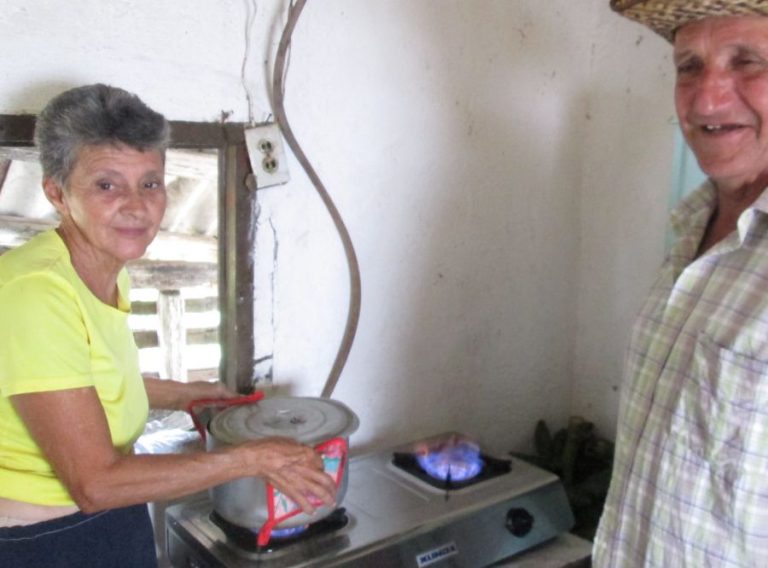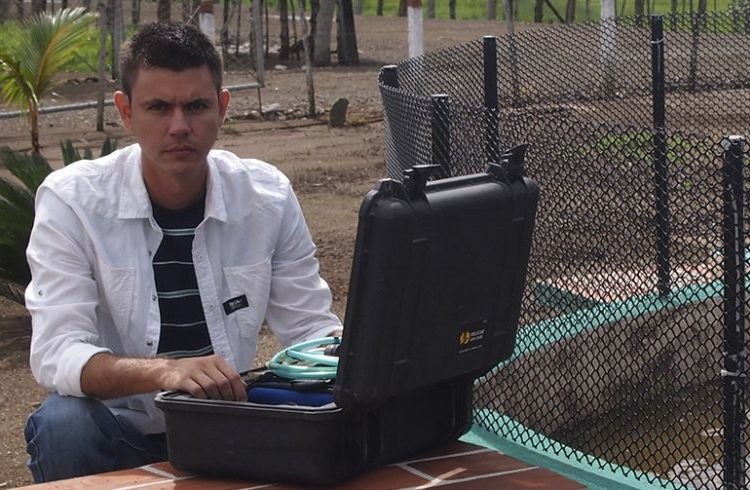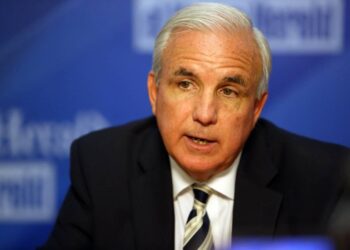A Cuban from Cabaiguán, Alexander López Savran, was one of the Latin American innovators less than 35 years old who won the prize in 2017 of the MIT Technology Review in Spanish, property of the famous Massachusetts Institute of Technology. The world’s oldest technology magazine recognized him for his biogas supply system that benefits more than 500 persons, who reduced by 50 percent their electricity bill from traditional sources. We found the story in the newspaper Escambray.
A young man from Cabaiguán was the only Cuba who received a prize in 2017 by the world’s oldest technology magazine thanks to his biogas supply system in farmer communities.
The news smelled atypical through and through: a young man from Cabaiguán appeared as the only Cuban in the select list of Latin American innovators less than 35 years old who received a prize during 2017 by the MIT Technology Review in Spanish, the world’s oldest technology magazine, property of the U.S. Massachusetts Institute of Technology.
The presentation could not be more seducing when it called for discovering “the 35 Latin American young people who are about to change the world with technology.” The one chosen from the island, Alexander López Savran, won this contest with a biogas supply system in Cabaiguán farmer communities, based on its social and humanitarian importance.
“The project uses livestock waste as a source of renewable energy. We installed the first system in the community of El Colorado with two biodigesters from the hog-breeding center next to the community. At present there are already four systems, with the possibility of extending the service. This is the first experience of its type in Cuba and a project of this type is not known of in Latin America and the Caribbean,” Alexander affirms.
An electric engineering graduate, he first worked in the Provincial Electricity Enterprise and later in the University until he changed course toward the development of biogas as an alternative to reduce the dependence on fossil fuel, an idea that was in his blood because his mother – the also engineer Valentina Savran – is among the initiators of this movement in the province.
How did you decide to work on the subject of biogas that constitutes a competition to the use of conventional electricity? Do you consider that choice betrays your specialty?
“No. The country’s idea as well as on a world level is saving fossil fuel for the protection of the environment and to contribute to reducing climate change. In that sense this is a very feasible alternative. When I was studying my career I started to see this subject. My graduation thesis was based on what I could save through a renewable energy source. Later on the thesis for my Master’s was on trigeneration with biogas.
“All this is because of my mother, who is a specialist on this subject and the coordinator of the Biomass Cuba project in the municipality. Since I graduated I have also been working on the Biomass Cuba project, which has given me the opportunity to do research and develop my ideas. Today I specialize in the biogas technology, which doesn’t have to do directly with electric engineering, but is another specialty I have, from the design to the advice for the construction and creation of the biodigesters and the distribution networks, as well as the installation of equipment, their maintenance. Here there existed a problem, in many scenarios more biogas was generated than what was used and I started creating the supply systems that make it possible to distribute it to the homes.”

Since before the use of biogas was already a reality in Cabaiguán, what does your contribution concretely consist of?
“The innovation is in creating a new model of biodigester based on the model of fixed dome. With that new model it is possible to obtain greater efficiency and distribute it at a distance of five kilometers without using compressors or blowers, saving power. I made structural, constructive changes, material is saved, and they are more resistant. In addition a new service is created for the community. The prize is because of its social impact.”
Who finances the design, the construction and the resources these systems need?
“The financial part comes from the Swiss Agency for Development and Cooperation (COSUDE), which assumes the payment for the materials to make the biodigester, the burners – which are imported from China and are given free of charge to these communities -, the pipes that are bought in Fomento. This is not just my project, the idea is mine but it was possible to implement it thanks to COSUDE’s financial contribution and the aid of the government in Cabaiguán.”
Do the farmers have to pay for the biogas installation and service? Is that fuel only used for cooking?
“No, the farmers pay for some accessories, the details that are missing to finish the installation. But until now the use of biogas is free. It has been said that perhaps in the future persons will pay something for the maintenance and sustainability of the project. In these communities at present it is only used for cooking, but in some farms they also have imported rice cookers and refrigerators to test their functioning.”
What other communities benefit from the prizewinning project and up to where are there perspectives to extend it?
“Ojo de Agua, Macuca and the Juan González cooperative have already benefitted. At present four systems for the supply of biogas are functioning and they are benefitting 522 persons in 102 homes. We want to extend the service to all the homes in those communities. Also to other places like Punta de Diamante, Poza, among others, because of the excellent acceptance and importance of this initiative to improve the quality of life in the communities and decrease the consumption of fossil fuel.”
What concrete advantages and disadvantages does the application of these systems imply?
“This is a new service that contributes to the diversification of the energy matrix in the municipality. It raises the population’s quality of life, work is humanized, it improves the family economy, new jobs are created, it offers training, raises the energy culture, the use of firewood is eliminated – which avoids deforestation – and it increases the productive unit’s profits. In addition, it decreases the consumption of conventional energy carriers, with a saving of more than 122 MWh/year; and it avoids the emission of greenhouse effect gases, contributing to the care of nature. If managed badly it has its disadvantages, because if we expel the biogas into the atmosphere it will be contaminated.”
Alexander advising the construction of biodigesters. Photo: escambray.cu.
Is there some obstacle today in Cuba to expand biogas?
“I would say there are no obstacles. It depends on the resources, but it is a feasible investment because its recovery takes place in one or two years. When I started seeing the experiences of the Latin American Biogas Network I realized that we’re doing rather well in this subject. Many people call Cabaiguán the capital of Biogas in Cuba. This has entailed a lot of work and effort but the achievement is there, it’s not just words, it’s a fact.”
The seemingly serious and introverted Alexander López Savran already received his prize in Mexico’s Pan American University. Since he likes to plant and stay rooted to nature, every day he spends time working the land as a usufructuary of a small farm. There he dreams of one day building a biogas research center.










